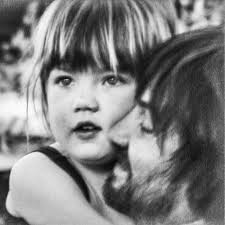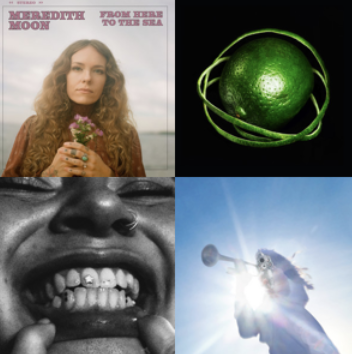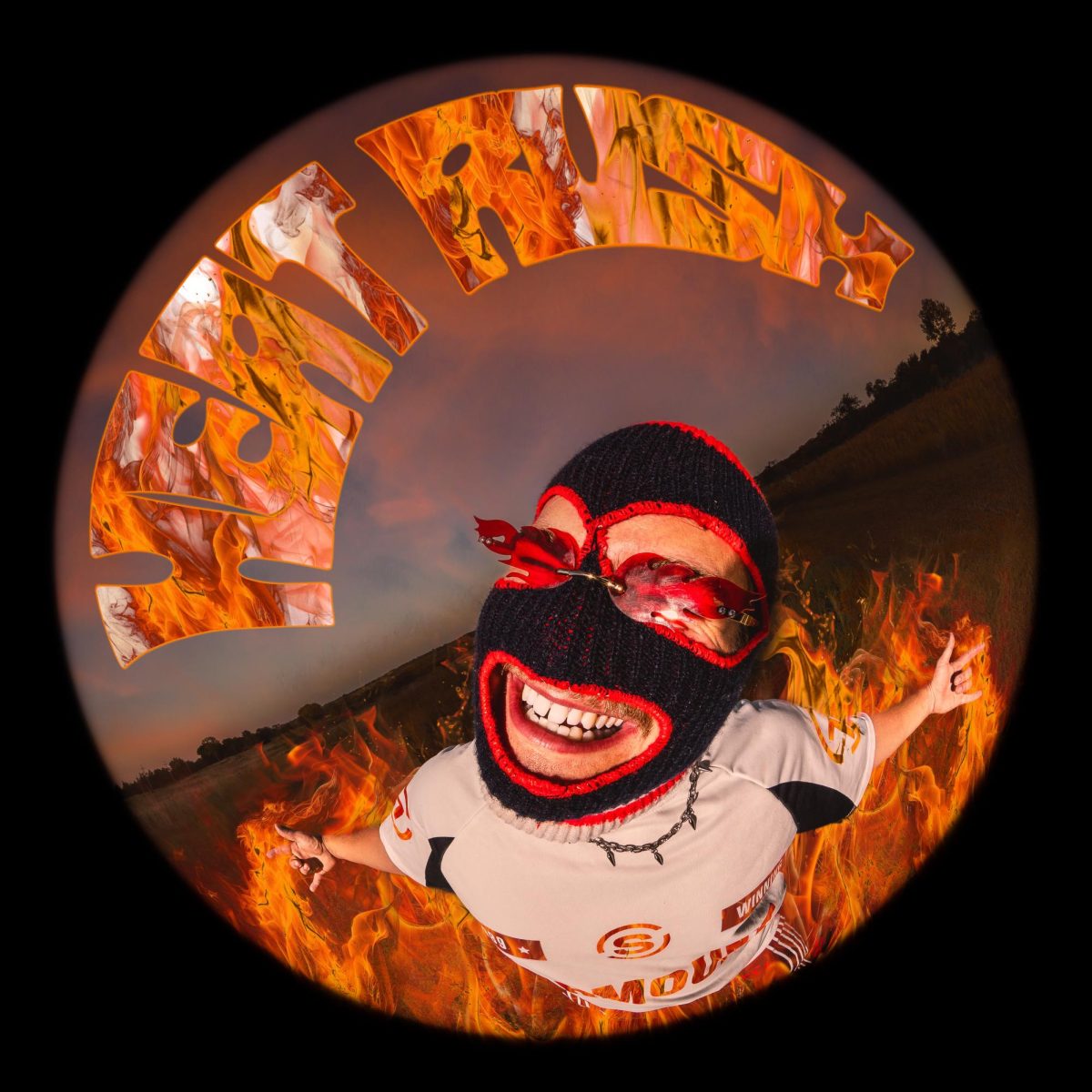Why Bonnie released their introspective rocking sophomore album, Wish on the Bone, August 30th. The 11-track collection feels like an intimate conversation with listeners, featuring lyrics exploring disillusionment and life’s unpredictability. The New York-based, Texas-formed trio is led by songwriter Blair Howerton with fellow bandmates Chance Williams and Josh Malett. The new album feels like a natural sequel to the band’s first album, 90 in November, which reflected on Howerton’s life in Texas and childhood. To follow, Wish on the Bone represents a more developed lens on the future, presenting commentary on modern issues and attitudes while exploring the personal transitions that come with growing up. There’s something timeless about the way that Howerton reflects–reminiscent of ideas and imagery found in Emily Dickinson’s poetry. It invites listeners to find comfort in the melancholy while still holding on to hope.
The title track, “Wish on the Bone,” reflects a longing for clarity in an ever-changing world. In Howerton’s lyrics, “Sometimes it’s over / Before it gets started,” the country-inspired vocals reflect an unavoidable vulnerability that listeners can’t help but share. Life continues to move regardless of how people feel about it, an idea that Why Bonnie references several times throughout the album, and a message especially relevant for the transitional season of autumn.
Howerton has never shied away from presenting her beliefs in her music, ranging from ethical explorations to political statements. The song “Dotted Line” explores her disillusionment with capitalism, and the difficulties people have to go through just to get through the day. It’s one of two songs on the album that references money and a capitalistic economy as a root for human struggles, with the other being the seventh track, “All the Money,” which presents an honest reflection into how financial greed can prompt people to hurt others and themselves.
As someone who finds myself reading plenty of Emily Dickinson in the autumn months, the parallels between several of her poems and Howerton’s poignant lyricism stood out to me. The reflections on death, solitude, and life’s changes, coupled with the natural themes and explorations, all point to the contemplative offerings of Dickinson.
In the song, “Rhyme or Reason,” Howerton sings about Halley’s Comet: “I’ve never seen its streak / But I have heard it comes fast, and you’ll miss it if you blink,” using the comet to represent the lack of control that comes in life, especially when grieving. This reminds me of Dickinson’s poem, “Under the Light, yet under,” which references the Comet of 1823 with its similar explorations of death and the fragileness of mortality.
I also saw parallels to Dickinson’s poetry with the other track on the album that references space, “Three Big Moons.” The song discusses the comfort and loneliness that can accompany solitude through a sci-fi metaphor, while also giving a classic Why Bonnie shoutout to Texas. This parallels Dickinson’s poem, “There is a solitude of space,” which presents solitude in a similar way to Howerton as a transformative experience, bringing “A soul admitted to itself / Finite infinity.”
Wish on the Bone is a lyrical and reflective masterpiece that manages to feel both deeply individual and still universally resonant. Why Bonnie’s evolution since 90 in November is strikingly apparent, with Howerton’s songwriting developing to offer not just a view into her own life experiences, but also as a mirror for listeners to reflect on their own emotions and changes. Existing at the same time as hopeful and melancholic, the album is a bittersweet invitation for us to find the beauty in vulnerability, offering a soundtrack for life’s twists and turns. Why Bonnie has solidified themselves as a band that will encourage listeners to move forward, regardless of how difficult it might feel, with the perfect blend of softness and strength.





